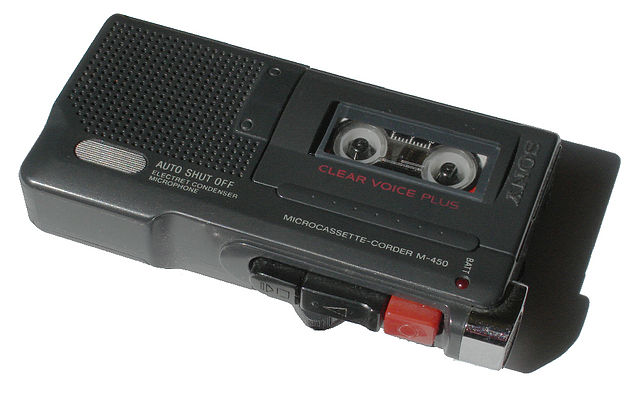 Employers are known to watch their employees, especially in industries where employers fear worker theft. Your employer may use security cameras, track your company-issued smartphone, or monitor your e-mails, Internet searches, or use of company computers.
Employers are known to watch their employees, especially in industries where employers fear worker theft. Your employer may use security cameras, track your company-issued smartphone, or monitor your e-mails, Internet searches, or use of company computers.
Surveillance by employers can be all encompassing, but surveillance by workers is something most employers want to avoid. However, employees who feel they are being discriminated against or harassed may want to record what happens at work as evidence that may support a legal claim.
Fortunately, employees are not without some rights to do some surveillance of their own within limits. Depending on where you are and why you’re making the recording, it may be legal for you to make such recordings even if there is a blanket prohibition by your employer disallowing recording.
Table of Contents
ToggleBroad Ban on Employee Recording Ruled Illegal

Whole Foods Market is a nationwide chain of grocery stores that features organic products, grain-fed beef, sustainable seafood, and high prices. What these apparently progressive stores don’t have are unionized workers. Whole Foods is the second largest non-union retailer in the country behind Walmart, according to Yahoo Finance.
Co-CEO John Mackey denies that the company is anti-union, stating that Whole Foods is “beyond” unions and that employees don’t want to join because they’re treated so well. In the past, Mackey has been quoted as comparing unions to the sexually transmitted infection herpes.
In a decision concerning a complaint filed by the United Food and Commercial Workers, Local 919 and Workers Organizing Committee of Chicago against Whole Foods, the National Labor Relations Board (NLRB) ruled that a company policy prohibiting workers from recording conversations violated the National Labor Relations Act (NLRA), according to an article in the National Law Review. The decision also stated that a policy forbidding employees from taking photos at work may violate the Act.
The policy didn’t allow employees to record anything, anywhere, at any time without the permission of management or all those present. The decision stated that the company’s ban on all recordings or photography by employees was illegal because it inhibited employees in making, recording, or taking pictures regarding workplace safety, discriminatory conduct, or harassment, which they have the right to do under the NLRA. This ruling applies to all workplaces, regardless of whether they’re unionized.
One policy under scrutiny stated that “to encourage open communication, free exchange of ideas, spontaneous and honest dialogue and an atmosphere of trust,” recording devices could not be used in meetings unless management gave prior approval or unless all parties present agreed to the recording.
- Whole Foods claimed its policies advanced its “core values” and “culture” that all employees be empowered to “speak up and speak out” on many issues.
- The company also argued an internal appeal process for employment termination would be harmed if its no-recording policies ceased. With this process, a terminated employee can have a review of the decision by a panel of “peers” that would meet, review documents from the employee, discuss the discipline, and vote on whether the termination decision should stand or be overturned.
- Whole Foods argued that the policy was also critical for the handling of employee requests to the Team Member Emergency Fund. These requests for financial help often involve confidential issues like financial need, family illness, death, or personal crisis.
The More Narrow the Recording Restriction, the More Likely It Will Be Legal

In a split two-to-one decision, the NLRB decided not to buy what Whole Foods was selling and rejected its arguments. The Board stated as follows:
- Employees would reasonably interpret the rules to stop them from engaging in protected concerted activity that is protected by the NLRA.
- Secretly taking pictures and making audio or video recordings in the workplace are protected activities under the NLRA if “employees are acting in concert for their mutual aid and protection and no overriding employer interest is present.” Here, the Board found no such overriding employer interest.
Some examples of permissible recordings involving protected activity cited in the decision include documenting or recording the following:
- protected picketing,
- unsafe or hazardous working conditions,
- discussions of terms and conditions of employment,
- inconsistent application of employer rules, and
- evidence to preserve it for later use in administrative proceedings or in court in employment-related actions.
State Laws Governing Recording
Laws concerning the recording of conversations of others vary from state to state.
- Maryland law requires all parties being recorded to consent if there’s a reasonable expectation of privacy for the conversation.
- In the District of Columbia, a person may record an oral communication if he or she is a party to the communication or has received prior consent from one of the other parties.
- Virginia law states that an individual can record oral communications in which he or she is a party or if one party to the communication consents. Consent is not needed to record nonelectronic communication uttered by a person who does not have a reasonable expectation of privacy in that communication.
Federal law requires the consent of all parties before a telephone call can be recorded. The Board took issue with the company’s very broad policies that were in effect all states where Whole Foods is in business, not just the states were nonconsensual recordings are prohibited.
The decision did not give employees the freedom to ignore all rules against recordings. The decision acknowledged that some limited restrictions on recording would be valid, depending on the employer and the circumstances. The NLRB let stand a 2011 decision where the agency allowed a recording ban where the employer was a hospital and patient privacy was a strong employer interest worth protecting.
The decision admitted that Whole Foods Market’s business justifications for not allowing recording in its annual “town hall meetings” and termination appeal panels were “not without merit,” but these narrow instances didn’t justify the company’s broad, unrestricted ban on recording.
Summing It Up
Depending on the state where the recording is made, it may be legal to secretly record the goings on at work. This recording should concern these items:
- working conditions,
- conversations about terms and conditions of employment,
- the way employer rules are applied, or
- possible evidence to be used in an administrative or court proceeding.
Making secret recordings at work, especially if there is an employer policy prohibiting it, is not something to be taken lightly. If your situation in Maryland, the District of Columbia, or Virginia is so extreme that you feel the need to make such recordings, contact our office first so we can talk about what your job entails, what violations of the law may be occurring, and whether making secret workplace recordings makes sense.





